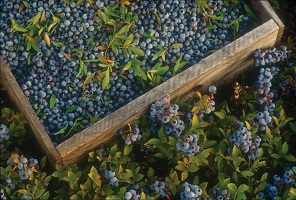By Katie Barfoot – Nutritional Psychology Lab, University of Reading
We all know that fruit and veg is good for us. But some new research from the University of Reading has revealed there is more than meets the eye with the little blue super fruits we call blueberries.
These berries, which are full of a type of nutrient called flavonoids, were shown in two separate studies to improve the positive mood of children and young adults just two hours after consumption.
The two studies, which were conducted by the University’s School of Psychology and Clinical Language Science’s Nutritional Psychology Lab, were run in two populations – healthy young adults aged 18-21, and healthy schoolchildren aged 7-10.
After consumption of a flavonoid-rich blueberry drink, both groups rated their positive mood as being significantly higher than before the blueberry drink consumption.
What’s more, we know it was the flavonoids present in the blueberry drink that made the difference, because no such finding was observed in a group of study participants who consumed a placebo control drink, which was matched for sugars, vitamins and taste.
So how are these flavonoids working?





